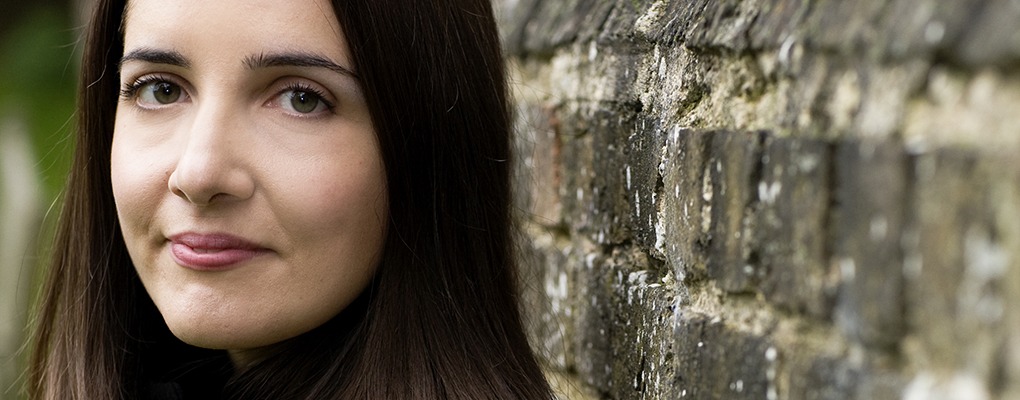Features
‘In the dock’ with author Jane Casey
Jane Casey is our tenth author to face the barrage of questions in our dock. Crime is a family affair for Jane Casey. Married to a criminal barrister, she has a unique insight into the brutal underbelly of urban life, from the smell of a police cell to the darkest motives of a serial killer.
This gritty realism has made her books international bestsellers and critical successes; while D.C. Maeve Kerrigan has quickly become one of the most popular characters in crime fiction.
Jane, please tell us about your new book?
The Stranger You Know is about a serial killer who is targeting single women, killing them in their own homes – apparently with their full cooperation. How he gets them to trust him is a mystery. Equally mysterious is the way the bodies are arranged after death: it bears a startling similarity to a twenty-year-old case where the main suspect (in fact, the only suspect) was a teenager named Joshua Derwent. Now he is DI Josh Derwent, police inspector, and Maeve Kerrigan’s irascible boss. He makes a pretty good suspect this time round too. Maeve is tasked with investigating the cold case. The more she finds out about what happened to Derwent’s girlfriend, the more troubled she is. She doesn’t think Derwent is guilty, but trusting him could prove to be a fatal mistake.
Who or what was the inspiration for Maeve Kerrigan?
I wanted to write about a young police officer rather than the older, more seasoned type who commonly appears in this genre. Maeve is still finding her way and learning how to handle difficult situations as she goes along, but I think she has the potential to be a very formidable police officer indeed. Her personal life is a touch chaotic in that late twenties not-quite-settled-down way that I know very well from friends and my own experience. As someone Irish who lives in London, I am very aware of the differences in culture that might elude a native Londoner. I wanted Maeve to be the first generation of her family to be born in England but brought up as if she was back in Ireland, so she never feels quite at home. Outsiders make very good detectives, I think.
The gritty realism of your novels is emphasized through your choice of location. How important is a sense of place to your writing?
London is the ideal backdrop for any crime novel. The way London has developed from a collection of villages into one large urban sprawl means that each area has a very distinct identity, so where I set scenes acquires extra significance. Its extraordinary history is written all over its streets, from medieval buildings to post-Blitz infill construction and the new upsurge in City skyscrapers. There are almost eight million Londoners and a hundred spoken languages – diversity is the city’s defining characteristic. The potential for stories is essentially limitless. Anything is possible; everything is believable. And no one looks anyone else in the eye, so my killers can operate with impunity.
Does your writing ever scare you?
Sometimes. Some of the things I don’t write about scare me too much to tackle; there are things that are too close to home to imagine. Maeve has a stalker who is a very worrying individual. I have put her in situations that would make me curl up and cry, but fortunately she is made of stronger stuff.
Where do you write your novels?
Absolutely anywhere. Airports. Coffee shops. My sofa. Hotel rooms. Hotel bathrooms, now and then. Every now and then I manage to work at my desk. If you wait for the perfect conditions to write a book it will take you seventy years to get it done. I can tune out an awful lot when I’m working, it transpires. I write a lot in my local library, which doesn’t go in for monastic silence but is a thoroughly welcoming place. The one thing I can’t stand is listening to music I actually like while I’m working. Background noise is fine but I get distracted by concentrating on the good stuff.
Which crime fiction related book, TV programme or film have had the most impact on you or your writing?
I read tons of crime fiction as a teenager – everything from Agatha Christie to Patricia Cornwell. I think I probably learned something from each and every book. Thomas Harris’s Red Dragon and Silence of the Lambs were amazing to read for the first time but they were just as good the twentieth time. Twin Peaks was the first TV programme that obsessed me – no one else in my family or at school was interested but I adored it. Pare away all the Lynchian weirdness and it’s a great crime series. Laura Palmer was a wonderful victim.
What is your favourite scene or line from any crime fiction book?
I could practically recite The Secret History in its entirety but my favourite scene is Bunny’s terrible, hilarious funeral, where the conspirators are far too high to make sense of the emotional undercurrents. The bit where Henry wipes earth from the grave across his shirtfront is one of those perfect bits of dark foreshadowing and cinematic beauty that Donna Tartt kept turning out, all through the book.
What tip would you give any budding writers?
Read, a lot, and don’t get discouraged. Find your own voice but pay close attention to how other writers tell their stories. And don’t discount anything just because it’s popular. There’s a reason it was published and struck a chord with readers – think about what it might be.
Ebook or paper?
Paper, all the way, but then I’m one of the last people on earth to buy CDs rather than just downloading music. I’m a big believer in the work of book designers, and the heft of a specific book, and the way it looks after you’ve read it – the small creases and softened edges. There’s no sensual pleasure in an ebook. Useful for holidays, I will accept. Just don’t drop your reader in the pool.
If you were a fictional character, how would you write your own death?
In real life I am horrendously accident-prone. I would fall downstairs and break my neck, either by skidding on an abandoned toy or by tripping over my cat. I risk death hundreds of times a day as it is. At least it would be a quick death.
You can find Jane Casey on Twitter and her website.
Further Reading:


Please note: Moderation is enabled and may delay your comment being posted. There is no need to resubmit your comment. By posting a comment you are agreeing to the website Terms of Use.